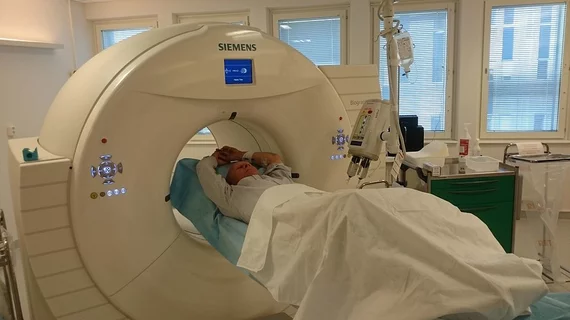Accessibility, reimbursement and other issues limit uptake of PET/CT among oncologists, survey reveals
Adherence to the National Comprehensive Cancer Network’s (NCCN) PET-adapted guidelines is limited among clinicians treating patients with classic Hodgkin lymphoma (cHL).
Survey results published in JCO Oncology Practice revealed that although the majority of respondents give significant consideration to NCCN guidelines relative to PET imaging when treating patients, use of the modality during and after treatment cycles for cHL varies among providers.
Almost all (94%) of the 301 providers surveyed (oncologists, hematologists and hematologists/oncologists) reported obtaining a PET/CT scan at patients’ initial diagnosis; 97% of those providers conduct interim PET/CT for stage 3 and 4 cHL, which is recommended in NCCN guidelines.
The guidelines suggest using the Deauville five-point scale to review PET/CT results, but the survey results indicated that just 62% of providers adhere to this recommendation. And of those who do, opinions were mixed as to what denotes a positive Deauville five-point scale.
Although the survey results did not elaborate on factors associated with adherence, some of the data provided by respondents offer hints on the varying usage of PET/CT—the accessibility of the exam could be to blame.
Difficulty obtaining PET/CT scans was reported by 55% of respondents, with 21% citing this as the greatest barrier in treating cHL. Those who cited accessibility as a hurdle noted that, on average, they were unable to obtain scans on patients 20% of the time.
Factors associated with difficulty obtaining the exam were divulged as issues with insurance, insufficient reimbursement, PET/CT machines not in close proximity to patients, interpretability and lagging report times.
Combined, these findings leave much room for improvement, the study authors suggested.
“These results suggest that there is an opportunity to educate oncologists and radiologists on the importance of consistently reporting PET/CT Deauville 5PS scores and the use of response-adapted imaging to optimize treatment modifications,” the group wrote.
The survey results are available here.

